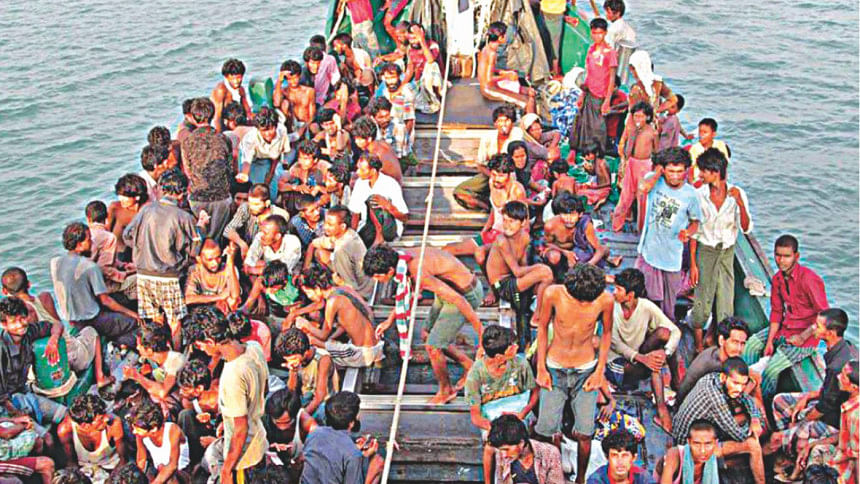Resettling Rohingyas and international law

The 1951 Convention Relating to the Status of Refugees and its 1967 Protocol Relating to the Status of Refugees are two major international instruments under international refugee law. Again the 1954 Convention Relating to the Status of Stateless Persons and 1961 Convention on the Reduction of Statelessness are two other major international instruments that were adopted by world community to protect the rights of stateless people worldwide. Though neither Bangladesh nor Myanmar has acceded to any of these instruments, they have international obligations towards the Rohingyas residing within their territories under their respective constitutional framework and different UN treaties (i.e., under broader mandate of UN) to which they have already been acceded. That is to say, despite Bangladesh is not a State Party to these major refugee law instruments, under the principle of non-refoulement, it is obliged to provide the shelter and protection to Rohingyas and in no way it can avoid its obligation. Hence, Bangladesh has obligations towards the Rohingyas mainly to: (1) grant a temporary asylum; and (2) to ensure respect for and protection of the basic human rights of Rohingyas during this asylum, i.e., Bangladesh has an obligation to ensure that the basic human rights of Rohingyas are respected while they are in temporary asylum by ensuring equal protection of law and access to essential services, e.g., food, education and housing.
But in reality, these obligations have not always been complied with and the reasons for the non-compliance point to the limits of international refugee law as a comprehensive solution to the problem of migration of the Rohingyas. Bangladesh has already breached this obligation on several occasions, e.g., the 1992 expulsion and recent boat turning incidents of Rohingyas in 2012 and 2016 from Bangladesh. The Bangladesh government has been accused of withholding food aid and of punitive restrictions on international organisations providing lifesaving humanitarian aid. Though Bangladesh has allowed the entry of Rohingyas into its territory several times, she has refused their current effort for valued reasons including security concerns and demographic burden. The government has recently taken a decision to temporarily resettle thousands of Rohingyas in the Thengar Char Island situated in Hatiya Island in Noakhali. This is not rational according to the UNHCR as relocating them from Cox's Bazar to this island would deprive them of their rights to freedom of movement, livelihood, food and education. This 6,000-acres island is not worthy of living as it is situated in more than 37 miles away from the mainland. It is officially uninhabited and completely inundates during the monsoon. This island was declared a 'reserved forest' by the Ministry of Environment and Forests in 2013 where about 50,000 birds of 55,000 species live throughout the winter season according to the Spoon-billed Sandpiper. If Rohingyas are resettled in such an isolated Island, their human rights are likely to be violated by the government of Bangladesh.
The Rohingyas living in Bangladesh under humanitarian grounds are presently in a double jeopardy as both Bangladesh and Myanmar force them to live in a line of paradox. They are the most vulnerable groups in the present world as they are persistently subjected to flagrant human rights violations in Myanmar for decades. Bangladesh has given shelter to refugees from Myanmar in 1978, 1991, 2012 and 2016. In 2016 Bangladesh has given shelter to about 70,000 Rohingyas in its territory. It is now hosting around 5,00,000 Rohingyas in its territory, i.e., half a million Rohingyas living in camps in Cox's Bazar along Bangladesh's southeast border with Myanmar live in cramped and unsanitary conditions, in makeshift homes, with little access to clean drinking water and proper food. It proves that in comparison to Myanmar, Bangladesh is always far more respectful towards its international law obligations.
The writer is a Senior Lecturer in Law, Southeast University.

 For all latest news, follow The Daily Star's Google News channel.
For all latest news, follow The Daily Star's Google News channel. 



Comments